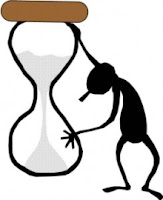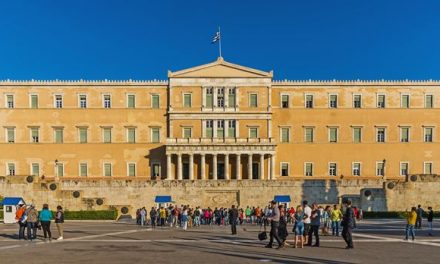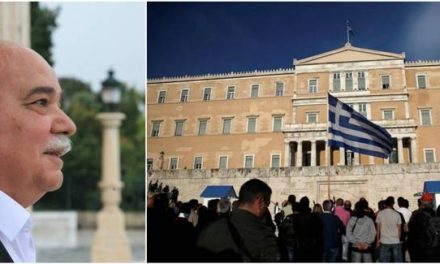In an LSE blog article titled “Investigating the psychological effects of the Greek financial crisis“,Bettina Davou (Professor of Psychology in theDepartment of Communication & Media Studies at the University of Athens) summed up the results of a research project that investigated the emotional atmosphere, the Media content and the citizens’ behavior towards the political and social action during the five recent years of financial crisis in Greece (2009- 2014).
Professor Davou confirmed the highly distressful emotional climate in which Greeks live since the beginning of the crisis. Negative emotions – such as hopelessness, pessimism, anger, fear, stress and disappointment – were dominant for all age groups.
Media have played a key- role in this process, by systematically focusing on threatening and destabilizing financial effects, and neglecting the humanitarian aspect of the crisis in problems such as poverty, unemployment, health institutions’ inaccessibility and suicide, which were covered instead in a highly dramatized manner, without any connections to the wider socio-economic context. At the same time, initiatives and collectivities (NGOs, church, neighborhood etc) formed to relieve pain and pressure created by the crisis were rarely mentioned, thus contributing to citizens’ deadlock feeling.
It is worth noting, however, that there were some differentiations in the research results, depending on the individual’s gender and age group. Men – considered probably as the main family bread earners- generally showed more hopelessness than women. When it comes to the age group, the youngest and the oldest citizens (18-24 and 55-70) recorded the highest levels of political efficacy.
 The younger individuals tried to seek new political action repertoires, while the older individuals felt more resilient, perhaps due to past experiences of recovery from sociopolitical distress. On the other hand, the middle aged citizens (25-44) appeared puzzled in terms of political efficacy not knowing who and in what to trust – thus, preferring to invest on personal goals and interpersonal relationships.
The younger individuals tried to seek new political action repertoires, while the older individuals felt more resilient, perhaps due to past experiences of recovery from sociopolitical distress. On the other hand, the middle aged citizens (25-44) appeared puzzled in terms of political efficacy not knowing who and in what to trust – thus, preferring to invest on personal goals and interpersonal relationships. Last but not least, another factor that is believed to have played a role in the psychological effects of the crisis was the individual’s social position. The most vulnerable citizens were those who were already at a disadvantageous position at the beginning of the crisis and thus, were immediately affected.
See also: Feeling the Greek Financial Crisis (excerpt from the book “Emotions in Politics: The Affect Dimension in Political Tension”, by N. Demertzis, October 2013)
TAGS: BUSINESS & TRADE | CRISIS














